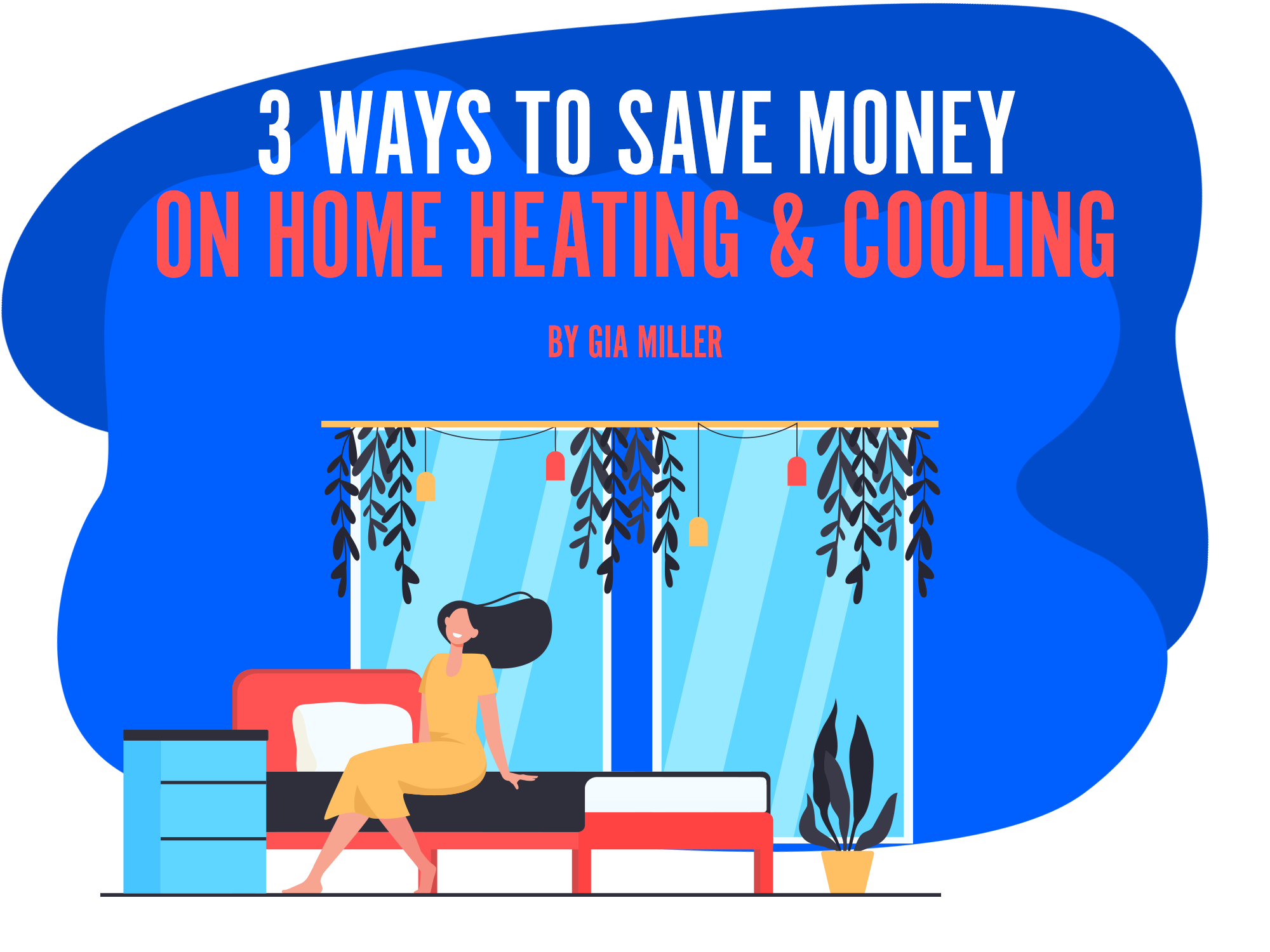Spring is finicky – one day it’s warm, the next day it’s cool. Sometimes the air conditioning is on, and other days you need the heat. But regardless if you’re heating or cooling, it definitely costs more these days. And, unfortunately, experts say oil prices may continue to rise for months or even the remainder of the year.
There are, of course, many ways to save money on the amount of oil you use in your home. Wearing a sweater inside when it’s cold outside is one way to go, but those in the industry know there are other ways to save money while avoiding the adding or removing of layers. So, we called Dan Singer, co-president of Robison, to get his tips on how to have a warmer home in the winter and cooler home in the summer.

Dan Singer, Robison co-president
Tip 1:
Install a geothermal heat pump
Replace your home’s boiler with a geothermal heat pump. What is a geothermal heat pump? It’s a pump that uses air from underground to heat or cool your home. Because the temperature underground is relatively stable (about 55o year-round), it’s pulling air that is warmer in the winter/cooler in the summer, compared to the outside air.
Although they’re called heat pumps, they can also provide air conditioning and possibly hot water to your home. But perhaps the most important thing you should know is that a geothermal heat pump can eliminate the need for for fossil fuels in your home – forever. Yes, that’s right, no more oil or propane deliveries. You’re done.
Installing a geothermal heat pump may require several steps, including:
- Removing your oil tank, and air conditioning condensers.
- Removing your baseboards, if you have them. (This is for aesthetics only – it’s not necessary for the installation of a heat pump.)
- Digging a trench or drilling holes underground to install the ground loop (a series of tubes or pipes that supplies your home with hot/cold air).
- Enlarging your ductwork so it can properly handle the velocity of the air blown into your home, if necessary.
Given all the potential steps involved, it’s typically easier to make the switch when you’re renovating your home, but it can be done at any time.
Sounds expensive, right? Depending on the size of your home, it can range in cost from $20,000 to about $50,000. But thanks to New York State and various local utility companies, you can apply for a variety of rebates to reduce the cost of equipment and installation. If you feel overwhelmed, Singer says his team and the folks at Dandelion Energy can help you determine what rebates are best for your specific situation.
“Cranking up the heat (or air conditioning) when you walk in the door often results in overcompensation – you’re likely to make it too hot or too cold so you are comfortable quickly, and that is inefficient.”

Tip 2:
Check your insulation and humidity levels
If your windows and doors are not properly sealed, you’re letting cold or hot air in, making it more expensive to heat or cool your home.
Regarding humidity, if your home is too dry, the thermostat may say one temperature, but you feel another. Not enough humidity in the winter can make your house feel colder, and too much humidity in the summer can make it feel even warmer. Many heating systems don’t automatically add humidity to the air, but that’s an easy problem to fix with portable humidifiers. Just make sure to clean them regularly.

“If you feel overwhelmed, Singer says his team and the folks at Dandelion Energy can help you determine what rebates are best for your specific situation.”
Tip 3:
Upgrade to a programable thermostat
Programmable, or “smart” thermostats give you the ultimate control. Saving money with one of these thermostats is easy: reduce your temperature in the winter/increase it in the summer when you leave your home. On your way home, gradually bring your home back to your preferred temperature. Cranking up the heat (or air conditioning) when you walk in the door often results in overcompensation – you’re likely to make it too hot or too cold so you are comfortable quickly, and that is inefficient.
*Note: Dan Singer knows a lot about this stuff, so that’s why we called him. Robison did not pay for this post.
Gia Miller is an award-winning journalist and the editor-in-chief/co-publisher of Connect to Northern Westchester. She has a magazine journalism degree (yes, that's a real thing) from the University of Georgia and has written for countless national publications, ranging from SELF to The Washington Post. Gia desperately wishes schools still taught grammar. Also, she wants everyone to know they can delete the word "that" from about 90% of their sentences, and there's no such thing as "first annual." When she's not running her media empire, Gia enjoys spending quality time with friends and family, laughing at her crazy dog and listening to a good podcast. She thanks multiple alarms, fermented grapes and her amazing husband for helping her get through each day. Her love languages are food and humor.








